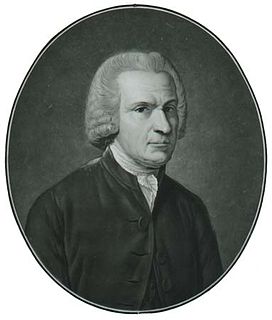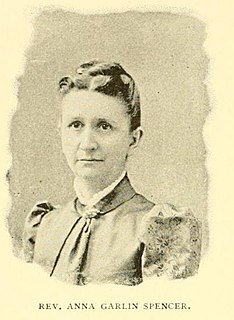A Quote by Bertrand Russell
In science the successors stand upon the shoulders of their predecessors; where one man of supreme genius has invented a method, a thousand lesser men can apply it. ... In art nothing worth doing can be done without genius; in science even a very moderate capacity can contribute to a supreme achievement.
Related Quotes
I regret that I must so continually use the word genius, as if that should apply only to a caste as well defined from those below as income-tax payers are from the untaxed. The word genius was very probably invented by a man who had small claims on it himself; greater men would have understood better what to be a genius really was, and probably they would have come to see that the word could be applied to most people. Goethe said that perhaps only a genius is able to understand a genius.
In science men have learned consciously to subordinate themselves to a common purpose without losing the individuality of their achievements. Each one knows that his work depends on that of his predecessors and colleagues, and that it can only reach its fruition through the work of his successors. In science men collaborate not because they are forced to by superior authority or because they blindly follow some chosen leader, but because they realize that only in this willing collaboration can each man find his goal.
Science is the only truth and it is the great lie. It knows nothing, and people think it knows everything. It is misrepresented. People think that science is electricity, automobilism, and dirigible balloons. It is something very different. It is life devouring itself. It is the sensibility transformed into intelligence. It is the need to know stifling the need to live. It is the genius of knowledge vivisecting the vital genius.
Talent is able to achieve what is beyond other people's capacity to achieve, yet not what is beyond their capacity of apprehension; therefore it at once finds its appreciators. The achievement of genius, on the other hand, transcends not only others' capacity of achievement, but also their capacity of apprehension; therefore they do not become immediately aware of it. Talent is like the marksman who hits a target which others cannot reach; genius is like the marksman who hits a target, as far as which others cannot even see.
To spread healthy ideas among even the lowest classes of people, to remove men from the influence of prejudice and passion, to make reason the arbiter and supreme guide of public opinion; that is the essential goal of the sciences; that is how science will contribute to the advancement of civilization, and that is what deserves protection of governments who want to insure the stability of their power.
Society cannot contribute anything to the breeding and growing of ingenious men. A creative genius cannot be trained. There are no schools for creativeness. A genius is precisely a man who defies all schools and rules, who deviates from the traditional roads of routine and opens up new paths through land inaccessible before. A genius is always a teacher, never a pupil; he is always self-made.


































